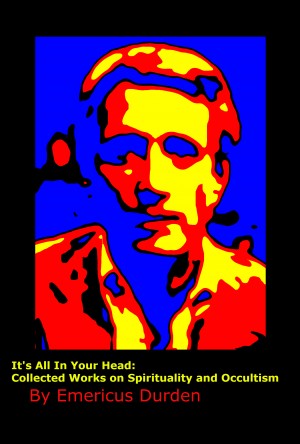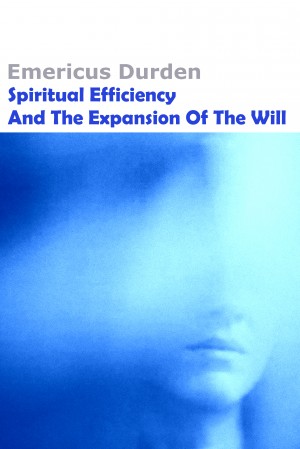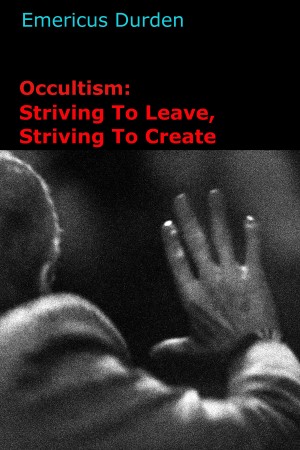Connect with the Author
Share with Friends
Interview with Emericus Durden
Published 2015-05-18.
Smashwords Interviews are created by the profiled author or publisher.
Books by This Author
Vision, Will, And Our World: The New Science of Radical Individualism
by Emericus Durden
Price:
$2.99 USD.
Words: 17,440.
Language:
English.
Published: January 3, 2017
by
Party Crasher Press.
Categories:
Nonfiction » Religion & Spirituality » Self-realization, Nonfiction » Religion & Spirituality » Spiritual awakening
In section I of the essay, the author discusses the development of the individual vision. In section II, the author discusses the development of the individual will. In section III, he unites the vision and the will to create our individual world, that is, the world of our unique subjectivity.
It's All In Your Head: Collected Works on Spirituality And Occultism
by Emericus Durden
Price:
$3.99 USD.
Words: 43,630.
Language:
English.
Published: May 10, 2016
by
Party Crasher Press.
Categories:
Nonfiction » Religion & Spirituality » Body, mind, & spirit » Occultism, Nonfiction » New Age » Magic
This volume collects the major essays written and published by Emericus Durden on occultism and spirituality in the past decade. The four essays lay out in meticulous detail three complementary approaches to understanding and practicing the Work of Perfection: consciousness growth, identity expansion, and creative unification.
Spiritual Efficiency And The Expansion Of The Will
by Emericus Durden
Price:
$1.99 USD.
Words: 14,480.
Language:
English.
Published: January 6, 2016
by
Party Crasher Press.
Categories:
Nonfiction » Self-improvement » Personal Growth / General, Nonfiction » Religion & Spirituality » Body, mind, & spirit » New thought
In Spiritual Efficiency And The Expansion Of The Will, Emericus Durden provides the cognitive and behavioral framework to help you get anything you desire, as well as to get rid of all your desires.
Walking Up And Down On it: Collected Philosophical Works
by Emericus Durden
Price:
$4.50 USD.
Words: 40,320.
Language:
English.
Published: August 3, 2015
by
Party Crasher Press.
Categories:
Nonfiction » Philosophy » Metaphysics, Nonfiction » Philosophy » Movements / Rationalism
One’s experience of the entire transformation process from beginning to end – taking up the method of skeptical nihilism, seeing the practice through to its completion, afterwards stabilizing oneself in the new perspective beyond every possible form of human society and civilization – yes, one’s final experience is that of triumph: triumph over oneself and triumph over civilization.
Occultism: Striving To Leave, Striving To Create
by Emericus Durden
Price:
$2.99 USD.
Words: 19,450.
Language:
English.
Published: August 1, 2015
by
Party Crasher Press.
Categories:
Nonfiction » New Age » Meditation, Nonfiction » Self-improvement » Personal Growth / General
Author Emericus Durden has developed the first comprehensively new approach to occult theory and practice in more than 50 years. His latest book - Occultism: Striving To Leave, Striving To Create - systematically lays out his entire approach, beginning with an introduction addressing why occultism matters, then launching into all three ‘phases’ of Mr. Durden’s occult methodology.





